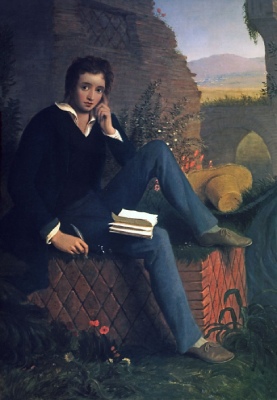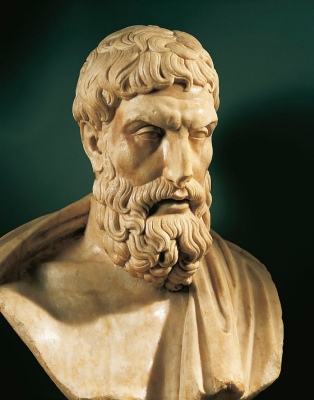Michael Hauskeller for BBC Bitesize: Three philosophy nuggets to help you in the New Year

January is an opportunity to take stock of your life - to think about where you want to be and how you can get there.
Maybe you have made a list of resolutions, things you want to give up and ideas for new experiences.
But, even though we’re past the solstice and the evenings are getting gradually lighter, it’s also a time of short days and cold weather. Sometimes, spring with its promise of new beginnings seems a long way off.
The answer could lie in philosophy, which literally means 'love of wisdom' and is the act of trying to understand fundamental truths about ourselves and the world we live in.
Bitesize asked Professor Michael Hauskeller, Head of Philosophy at the University of Liverpool to share some of his favourite theories and quotes to nourish us at the start of the year.
Embrace the chance to make a positive change (Hannah Arendt)
Instead of feeling pressured to make New Year resolutions, Prof Hauskeller recommends seeing it as an opportunity.
He suggests looking at the work of Jewish German-American historian and philosopher Hannah Arendt, who was forced to flee Nazi Germany. Her 1958 book, The Human Condition, celebrated the basic fact that we have all been born - and that our births are a new beginning.
“She shifted the focus from the fact that we all have to die, which is part of what it means to be human, to emphasise instead that we all come into the world as a genuinely new being,” says Prof Hauskeller.
“There's the chance that with every new person that comes into the world something genuinely new could happen, because every person is different. So every birth is potentially a new beginning, and it's a chance for other new beginnings that could change the world.
“We are not doomed to repeat everything we have ever done and the mistakes we have made as a human species.”
New Year is an opportunity to remember that we as individuals are not fated to repeat our mistakes of the past, he adds.
“We're not doomed to stay the same person that we used to be, to repeat the same actions. We have the potential, each one of us, to turn our lives around if we choose to do so, and to start something afresh.”

Hannah Arendt, a political scientist and philosopher
Remember spring is just around the corner (Percy Shelley)
When you look out of the window during winter to see the bare branches and empty flower beds it is easy to think of the season as an ending.
But underground, the cold is softening the shells of seeds ready for germination, the eggs of insects are waiting to hatch and trees have sugar stored in their roots poised for an explosion of leaf growth when warmer weather comes.
Prof Hauskeller says we should think about the poem Ode to the West Wind, written by English Romantic poet Percy Shelley in 1819.
“It ends with a famous phrase - ‘If Winter comes, can Spring be far behind?’ The idea is that winter seems to signal an ending, but it's not really an ending because it paves the way for a new beginning,” he says.
“That also perhaps means with respect to ourselves, winter is just a phase in the course of life where spring will always follow.”

Percy Shelley was married to Mary Wollstonecraft Shelley, the writer of Frankenstein
Don’t try to carry all the worries of the world on your shoulders (Epicurus)
At the beginning of the year, we tend to think about what the next 12 months will bring. If you’re following 24-hour rolling news and constant social media chatter, it can be tough to look past the negative headlines to see the good in the world.
Prof Hauskeller points out that, like nature, we too can slow down and look inwards to give ourselves a break from feeling overwhelmed. Even though it may be important to stay informed, we should still take time to reflect on our own lives.
He says: “Perhaps winter is an opportunity to shut out all the noise from the world that we are constantly bombarded with, at least for a while, and focus on yourself and try to figure out what is really important to you and what matters most in life.
“Ultimately you have to live your life, and it's not healthy to take the worries of the world onto your shoulders. We should find the space to enjoy ourselves, to spend time with family and friends, and live in the moment to a certain degree.”
He points to the Ancient Greek philosopher Epicurus, who is thought of as a hedonist for trying to get as much pleasure out of life as possible.
“It's a bit more complicated than that because what Epicurus teaches is that we should learn to appreciate everything we have,” explains Prof Hauskeller.
“So if we can have luxury goods, wonderful. But if we just have a simple meal we enjoy that too. It's about learning to enjoy the simple things in life, and that might help with coping with a situation where the world seems in turmoil.”

Epicurus was born around 341 BC and died in roughly 270 BC
The original article featured on BBC Bitesize.